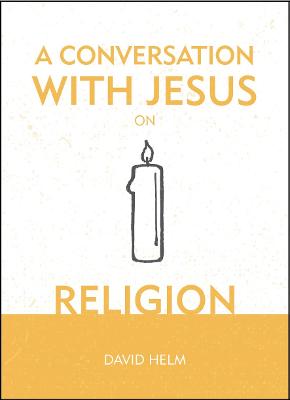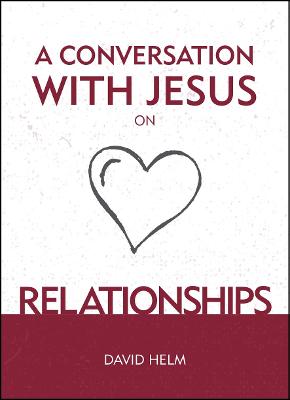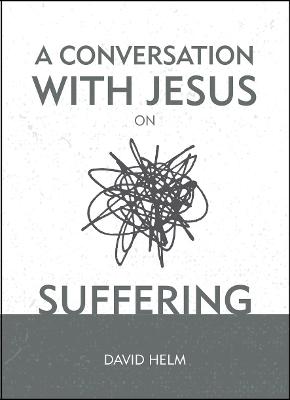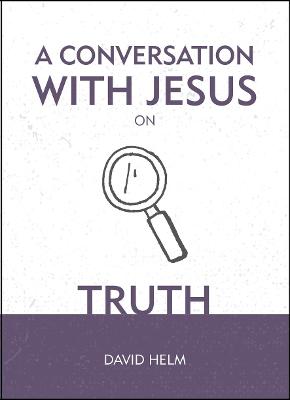A Conversation With Jesus
7 total works
Doubt is a virtue – a necessary check on blind certainty. ‘Doubting Thomas’ is a man who has been known for his doubt throughout history. He was one of Jesus’ early followers and he was a man who liked to make up his own mind based on the evidence available to him. When the other disciples told him they’d seen Jesus alive again it sounded outrageous.
But then he saw Jesus.
The evidence of his own eyes, ears, and hands, backed up what his fellow disciples had been saying. But Jesus had a thing or two to say about Thomas’ doubt.
Nicodemus was a religious man. He knew the religious law inside out and made sure he kept to it – he even taught it to others. He was confident that his religion would save him; after all, he was a good person.
But then he met Jesus.
According to Jesus his best attempts at living the moral life wouldn’t save him. But if religion won’t make us right with God, what will? Jesus gave Nicodemus an answer, but what does it mean?
She wasn’t particularly spiritual. She was looking for something else. A series of failed relationships behind her, she kept hoping for a real connection. Something that would last forever. Something that would satisfy that desire within her.
And then she met Jesus.
Her trip to get water from the well turns into a discussion about living water – and a relationship with the living God. A relationship better than all her previous relationships, that will endure, and give her the satisfaction she has been seeking.
He had been subject to a protracted and excruciating life of suffering. He was well aware of the unrelenting persistence of human misery. If anyone had a reason to feel betrayed by God, this man did.
But then he met Jesus.
At Jesus’ command, this man who hasn’t walked for 38 years is suddenly on his feet. But this healing brings many questions. Why this man and not another? Why was he suffering in the first place? And what would this man do now he could walk?
An amazing collection of six little books that let us listen in on real conversations Jesus had with real people, all in the Gospel of John
Six people – and their conversations with Jesus in the verses of John’s Gospel – are examined in this inspiring, thoughtful slip–cased collection on Christian belief and the meaning behind Jesus’ words. Each volume focuses on a specific theme, and is written in direct, simple language designed to help Christians find guidance in their lives across a range of topics, including:
- Truth and Jesus’ words with Pontius Pilate during His trial
- Suffering, and the conversation with the lame man healed by the pool of Bethesda
- Religion with Nicodemus the Pharisee
- Hope and His conversations with Mary Magdalene
- The nature and consequences of Doubt, with Thomas the Apostle
- The nature of Relationships, from Jesus’ conversation with the woman at the well
Each of the hardcover books in the six–volume collection are pocket–sized, making them easy and durable to carry in a purse, backpack, or briefcase for daily inspiration. The complete passage each book examines is included, as well as “Cast” and “Setting” notes for who was involved and where each conversation happened, short paragraphs on the meaning of Jesus’ words, and a page of Endnotes for further reading.
Perfect for new Christians – and for believers wanting to re–examine Jesus’ words that He shared with the people of His time – Conversations with Jesus is an indispensable resource for making Christ and his teachings, and his conversations, more ever–present in our daily lives.
Death is the destroyer of hope. Absence makes itself felt. Plans for the future are demolished. Mary Magdalene knew how this felt. She was devastated. Jesus was dead. His body had disappeared. The hopes that she’d put in him were snuffed out. She stood beside his empty tomb and wept.
But then she met the risen Jesus.
This meeting changes things. If Jesus is alive hope can be reawakened. Death is not victorious. Faith can have meaning. Hope can be yours.
What is truth? This question, asked by Pilate, a Roman governor in Jerusalem, has echoed down through the centuries and still has ramifications today. His job as representative of Rome and Roman law required that he discover out the truth about the charges brought against the prisoner before him.
So he asked Jesus.
The answer Jesus gives and Pilate’s reaction are enlightening. The truthfulness of Jesus’ words matter. Will you respond in the same way as Pilate?






